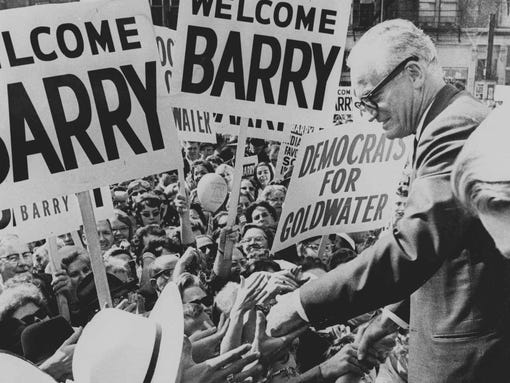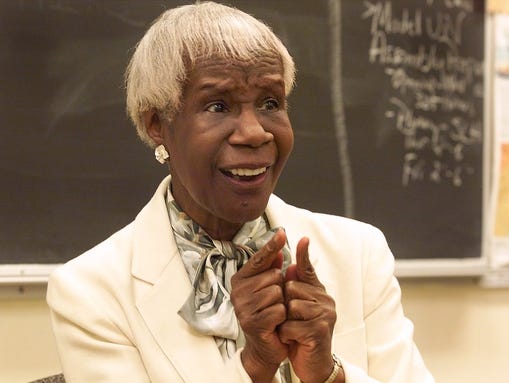... There's no shortage of prospects for 2016.
At the moment, those thought to be considering bids for the Republican nomination include a half-dozen sitting governors (Chris Christie of New Jersey, Bobby Jindal of Louisiana, John Kasich of Ohio, Mike Pence of Indiana, Rick Perry of Texas, Scott Walker of Wisconsin) and a couple former governors (Jeb Bush of Florida, Mike Huckabee of Arkansas). There are at least four incumbent senators (Ted Cruz of Texas, Rand Paul of Kentucky, Rob Portman of Ohio, Marco Rubio of Florida) and a former senator (Rick Santorum of Pennsylvania). There's ex-CEO Carly Fiorina and retired neurosurgeon Dr. Ben Carson, plus speculation about a re-run by the GOP nominee the last time around, Mitt Romney.
The Democratic side is dominated by former secretary of State Hillary Rodham Clinton, whose commanding position has discouraged a wide field. Still, Vice President Biden, Maryland Gov. Martin O'Malley and former Virginia senator Jim Webb have indicated they'd like to run, even against the odds. So has Vermont Sen. Bernie Sanders — although, as a self-described democratic socialist, he'd have to join the Democratic Party to run for the nomination.
Here are six reasons that spur politicians to run for the top job in American politics.
 |
| Barry Goldwater greets an Indianapolis crowd during a campaign tour in October 1964. (Photo: AP) |
1. To change the country's direction
Some contenders — Franklin Roosevelt in 1932, Barry Goldwater in 1964, George McGovern in 1972, Ronald Reagan in 1980 — promise to dramatically change the nation's direction.
FDR tackled the Great Depression in ways his predecessor, Herbert Hoover, had never considered. Goldwater was a hero of those who wanted a right turn from Lyndon Johnson; McGovern promised a left turn from Richard Nixon. Reagan oversaw a huge defense buildup and pursued more conservative social and fiscal policies.
Even those who fall short can have an impact.
"Goldwater wanted to move the Republican Party's center of gravity from the Northeast to the Sunbelt, and he was extremely successful by those lights," says Alvin Felzenberg, author of The Leaders We Deserved (and a Few We Didn't). The Arizona senator carried just six states but laid some of the groundwork that Reagan would follow. "He was probably one of the most influential losers in American history."
2. To make history
The groundbreakers also are more likely to clear the way for a future candidate than win the nomination or the White House for themselves.
Suffragist Victoria Woodhull was the first woman to run for president, in 1872, as the candidate of the newly formed Equal Rights Party — running even though women did not yet have the right to vote. A century later, New York congresswoman Shirley Chisholm became the first woman to run for the Democratic nomination, and the first African American to seek the nomination in either major party.
When civil rights leader Jesse Jackson ran for the Democratic nomination in 1984, he won several state contests, finished a respectable third in delegates behind Walter Mondale and Gary Hart, and then successfully challenged the idea of winner-take-all primaries. That prompted a rules change that turned out to be crucial for Obama in his campaign against Hillary Clinton in 2008.
When Utah Sen. Orrin Hatch ran for the Republican nomination in 2000, he said one reason was to demonstrate that a Mormon could contend for the presidency, though he wasn't the first Mormon to run. That would be Joseph Smith, founder of the Church of Latter Day Saints, who ran in 1844 calling for a "theodemocracy."Read the full story HERE.
If you like what you see, please "Like" us on Facebook either here or here. Please follow us on Twitter here.




1 comment:
They forgot to add 'Crave public office'
Post a Comment